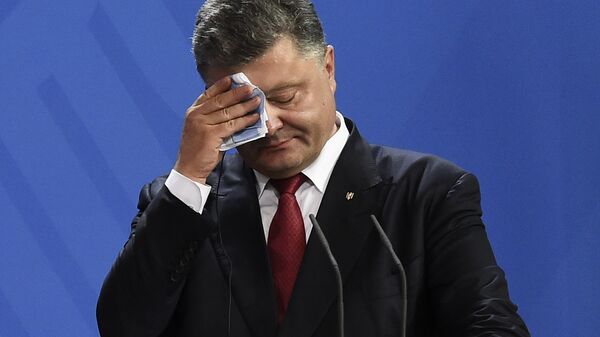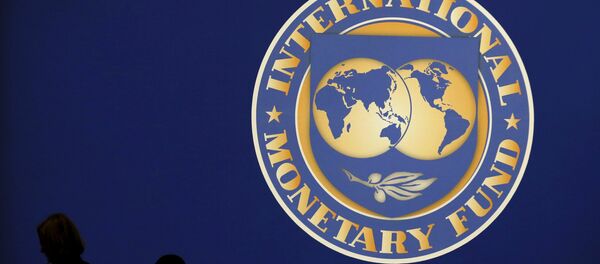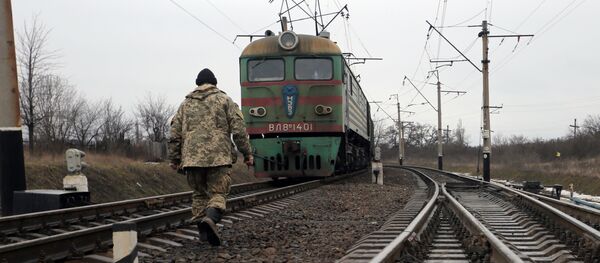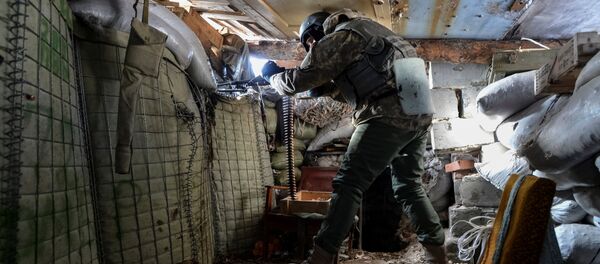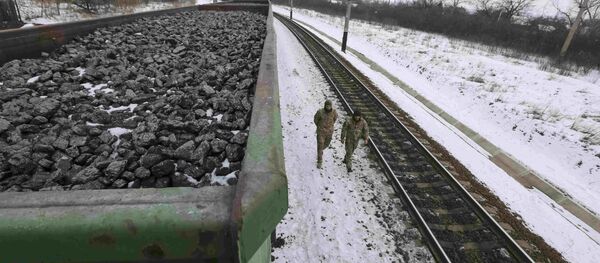"The IMF Executive Board postponed for a short period looking into the third review of increased loans to Ukraine, which was planned for Monday," the ministry said in a statement.
The planned meeting was expected to result in the disbursement of a $1 billion loan to Kiev.
The blockade of railway tracks between the self-proclaimed Donbass republics and Ukraine began in late January by former participants of military operations in Donbass. It has led to disruptions in deliveries of anthracite coal to Kiev-controlled territories. The blockade led to irregularities in supplies of anthracite coal from Donbass, leading to power shortages in Ukraine and prompting Kiev to declare an energy emergency.
There have been a series of reports that Western governments were critical of the blockade and its following legitimization by Poroshenko.
According to a statement by the Russian Foreign Ministry, "Ayrault confirmed that France wants the blockade of Donbass to be ended."
Earlier, the blockade was criticized by German Foreign Ministry spokesperson Martin Schaefer who said that Kiev’s actions deepen separatist tendencies in Donbass. He added that the Ukrainian government was not actively opposing the activists, which blocked the cargo traffic.
"There is no need for the IMF to help keep the Ukrainian economy afloat. Moreover, the expected loan of $1 billion would not have a significant impact on the economic situation in Ukraine," Dudchak told the Russian online publication Vzglyad.
The expert pointed out that the move by the IMF is important because it signals that the West has changed its stance towards Ukraine.
"Previously, economic and financial tools were used to force Kiev to make certain political steps in the interests of the United States and its Western partners. But now there is no need for that. That’s finished. Kiev is on a track it can hardly turn away from. There is no need for a demonstrative financial policy anymore," Dudchak said.
He added that Ukraine is failing to observe its financial obligations, including to Russia, and no country will do business with such a partner.
"The Ukrainian economy is de facto nearing a default, but Kiev doesn’t want to admit that. On the other hand, I think that Ukraine will continue to receive some financial assistance from abroad, but sufficient only to keep the political elite in power, rather than to rebuild its economy," the expert added.
"In other words, Poroshenko made free with the situation and forgot that he should coordinate his actions with Washington. As a result, the IMF delayed a new loan," Okhrimenko told Vzglyad.
At the same time, the economist noted, Kiev does not really need that money so much.
"This year, Ukraine has to settle its old loans to the IMF, some $1.3 billion, and $2 billion in other debts. Kiev needs a total sum of $3.5 billion. Now, Ukraine’s gold and exchange reserves are nearly $15.4 billion. So, Ukraine has money for that," he said.
Nevertheless, the decision by the IMF is a blow to the reputation of the Ukrainian government.
"They explained their reforms, including an increase in tariffs and taxes, with the requirements from the IMF. But now the situation is that reforms have been implemented but the IMF double-crossed Kiev," the economist concluded.
Never miss a story again — sign up to our Telegram channel and we'll keep you up to speed!

